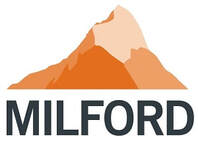KiwiSaver Private Equity - The Definitive Guide
Our guide outlines the KiwiSaver providers investing in Private Equity, as well as the pros, cons and risks of such funds.
Updated 19 July 2024
Summary
To help you understand what's on offer and everything that's important, our guide covers:
Summary
- We’ve published this guide to ensure New Zealanders are equipped with the tools needed to make better-informed decisions when choosing or switching KiwiSaver providers.
- In this guide, we cover what private equity is, the pros and cons of private equity, and the KiwiSaver providers who offer exposure to off-market private equity investments.
- By doing so, we want to help everyday New Zealanders make fully-informed investment decisions, especially when it comes to off-market investments that are traditionally higher risk. We appreciate that the risks won't appeal to some New Zealanders who prefer liquid investments.
- Private equity is one such investment known to have averaged returns of 10% p.a. (in the 20 years up to mid-2023). This has outperformed both the S&P 500 and the Russell 2000 in the process, beating New Zealand’s major banks’ offerings on term deposits. The unfortunate downside is that private equity isn't available to everyone as "first in" investors typically make the most gains (but also risk losing the most too).
To help you understand what's on offer and everything that's important, our guide covers:
In a nutshell - What is private equity?
- Private equity is an asset class made up of ownership of shares or stocks in a private company.
- Investment in private equity takes a more active role in a company’s growth providing operational support and management expertise. Private equity firms (and therefore KiwiSaver schemes) are much more involved with their invested companies allowing for much greater returns because they can control the outcomes.
- Keeping it simple, private equity is money that’s been invested in private companies that aren’t listed on a stock exchange.
- In New Zealand, KiwiSaver private equity exmaples include vineyards and orchards, bio-tech companies, education ventures and even space-related companies. The reality is the risks are diluted, so that no fund is overly exposed to one company or investment etc.
Must-Know Private Equity Facts and Risks
- Private equity is only available to investors with a large amount of money, usually institutional investors. Typical investment funds require $5-10 million to get started. With such restrictions, a small number of KiwiSaver schemes have decided to invest some of their money into private equity as they look to beat the market returns.
- Usually, there is a 7-10 year lockup period before receiving your investment returns for private equity. If you invest directly (i.e. outside of KiwiSaver or a managed fund etc), there are some limits if you plan on withdrawing early or suddenly need your investment money.
- KiwiSaver funds that invest in private equity give you access to the same opportunities available to institutional investors and thus also the same returns on investment.
With opportunity comes risk:
- You’ll find lots of private equity investment centred around tech start-ups. Because of the general high start-up failure rate, there is a risk of losing your investment.
- Due to the lock 7-10 year lockup period, there is a high risk of not taking out your funds from the investment until after the lockup period ends.
- Investing in private equity can significantly increase gains on high investment minimums and, given the risks, dramatically increases the chance of losses.
Pros and Cons of Private Equity vs Publicly Listed Shares
Some of the best investing gains are made before a company lists on the sharemarket. For this reason, private equity can be very valuable. However, the investments can go from a value of $5m or $10m to $0 overnight. For example, the company Unfiltered, backed by many companies in people in New Zealand was once valued at around NZ$11m (with an aim of reaching NZ$100m). However, in early 2021, the company was sold for around US$60,000. With this in mind, private equity has its pros and cons:
Pros
Cons
Pros
- Pressure - Investors in private equity can work longer towards term goals while publicly listed shares face constant pressure from the public to develop returns in the short term.
- Regulation - Because they do not need to answer to their public shareholders, private equity is less regulated by the government, meaning they can spend more time building their business. In comparison, publicly listed shares are heavily regulated and are required to disclose their information to the public, which slows down their business efficiency.
- More Significant Returns - Due to the nature of private equity, high net-worth investors and institutions can take advantage of much larger returns, as opposed to what they may have earned from their publicly listed shares.
Cons
- Information Privacy - Publicly listed shares offer access to their mandatory public releases of financial information regularly. Private equity information may not be as accessible, making it harder for you to do your due diligence.
- Targeted Audience - You’ll find that most private equity funds are only aimed at people with a high net worth. Publicly listed shares allow the general public to sell, buy and trade without exclusiveness.
- Trading Assets - Investors in private equity can trade with each other. However, if they are looking to sell these publicly, they require the founder’s consent. On the other hand, publicly listed shares have the freedom to trade without any founder’s consent. This makes investments in a private company hard to sell.
KiwiSaver Funds Investing in Private Equity
With the pros, cons and risks of private equity in mind, we outline KiwiSaver funds with private equity investments:
Booster
- Fund: Booster Geared Growth Fund
- What percentage of your KiwiSaver is allocated for Private Equity? 2.5%. (Booster Tahi 2.45% & NZ Innovation Booster 0.05%)
- Our view: The Booster Geared Growth Fund launched mid-2009 with the average return over the past five years top tier outperforming many other aggressive classed KiwiSaver funds (according to data from Sorted's Smart Investor). Out of 50 aggressive KiwiSaver funds, Booster performed in the top 14% of the funds with available averages of the past five years. Booster is an option if you’re comfortable with high-risk investments with high potential returns. This recent profile of Booster's venture investing (published in June 2023) has more details.
- What makes the fund stand out? Booster offers the highest exposure to private equity across its allocations of private equity. These can be found bundled under two funds of Booster’s KiwiSaver options, which we explain further below:
- Booster Tahi helps with investment in New Zealand-based companies with the idea of keeping the profit and talent in NZ. The Booster Tahi Limited Partnership is an investment fund created to support New Zealand’s small to medium privately-owned companies. Boosters Tahi Growth Fund’s portfolio holds partnerships predominantly in the agricultural sector with companies operating in the wine industry.
- NZ Innovation Booster (NZIB). In partnership with both Wellington UniVenture and Otago Innovation Limited with funding start-up companies and commercialization and development of intellectual property (IP). The NZIB helps fund and support both Victoria University of Wellington and the University of Otago to commercialize technological breakthroughs. NZIB’s early-stage investment means they’re able to keep IP in NZ for all fund investors to reap the rewards. NZIB’s portfolio comprises a majority of companies in the health sector, with some held in the service sector.
What companies do they invest in? Below is a breakdown of historical target holdings (sourced from the Booster Geared Growth Fund fact sheet):
Booster Tahi 2.45%:
- Booster Wine Group Limited Partnership 28.3%
- Booster Wine Group Loan Facility 20.2%
- Darling Group Holdings Limited 13.6%
- Sunchaser Investments Limited Partnership 11.4%
- Waimea Estates (Nelson) Limited 10.7%
- Lifetime Group Holdings Limited 6.9%
- Awatere River Limited Partnership 4.4%
- Dodson Motorsport Limited 3.6%
- NZ Cash (BNZ Bank Trust Account) 0.5% (a bank account, not a private equity investment)
- Dual Clutch IP Limited 0.4%
NZ Innovation Booster 0.05%:
- Rekover Therapeutics Ltd Convertible Note Shares 20.0%
- InstituGen Ltd Shares 16.6%
- Chitogel Ltd Shares 14.4%
- Edpotential Shares 12.8%
- Marama Labs Ltd Shares 12.6%
- Ferronova Pty Ltd Shares 6.6%
- X-Frame Shares 5.4%
- Alimetry Ltd Shares 2.2%
- Compliance Audit Systems Ltd Shares 2.2%
- Inhibit Coatings Ltd Shares 2.2%
- Ligar Polymers LP Shares 2.2%
- Mekonos Inc Shares 2.2%
- Avalia Immunotherapies Shares 0.6%
Other Booster KiwiSaver Funds that offer Private Equity:
- Booster High Growth Fund (3.6%)
- Booster Shielded Growth Fund (2.5%)
- Booster Balanced Growth Fund (3.45%)
- Booster Balanced Fund (2.5%)
For more details, please see our Booster KiwiSaver Scheme Review
Milford Asset Management
- Fund: Milford Asset Management Active Growth Fund.
- What percentage of your KiwiSaver is allocated for Private Equity? 0.69%
- Our view: The Milford Asset Management Active Growth Fund launched in early 2010 and has performed in the top 3% funds in comparison to 46 other growth-based funds per the Sorted Smart Investor tool. These returns make Milford a popular option for anyone looking for a diversified fund of majority equities and exposure to fixed interest securities. Milford recommends an investment period of a minimum of 5 years for the investor to be able to take advantage of the best returns.
- What makes the fund stand out? Milford Asset Management provides exposures to private equity in both their active growth and aggressive funds. The team at Milford has been making investments in private companies since 2011, creating positive growth for their members during this time. For their KiwiSaver funds, they’ve invested in companies in equipment finance, fleet management, and online learning.
What companies do they invest in?
- Equipment Leasing & Finance companies 0.22%
- Coretex 0.44%
- Cluey 0.03%
For more details, please see our Milford KiwiSaver Plan Review.
Simplicity
- Fund: Simplicity NZ Growth Fund
- What percentage of your KiwiSaver is allocated for Private Equity? 0.38%
- Our view: The Simplicity NZ Growth Fund launched in late 2016. Although there isn’t enough data to provide its average return over five years, The Simplicity NZ Growth Fund provides some exposure to income assets; however, a large portion of its investments are growth-based.
- What makes the fund stand out? Simplicity has its private equity investments tied into its NZ Growth Fund. They hold investments with Icehouse Ventures Limited and Tuhua Ventures Fund (Icehouse Ventures) who’ve backed Kiwi tech in over 230 companies, including Sharesies, Crimson Education, and Genoapay. Icehouse Ventures invests in New Zealand founders in their earliest stages with no bias to any specific market they invest in.
What companies do they invest in?
- Icehouse Ventures Limited 0.13% (which invests in dozens of companies)
- Tuhua Ventures II Fund 0.25% (which invests in dozens of companies)
For more details, please see our Simplicity KiwiSaver Scheme Review which has a dedicated section on the Icehouse investment portfolio.
Frequently Asked Questions
Private equity is not a transparent investment or asset. Our common questions and answers below help explain the finer points you need to know.
What differences are there between private equity and venture capital?
Venture capital is commonly known as a subset of private equity, which is an investment made in the earlier stages of companies that have not yet established their business models/businesses. Venture capital takes a minor stake in a company, while private equity takes a majority share allowing more control of business operations.
What are the most common for private equity firms to invest in?
Private companies, public companies, and start-ups.
How will private equity investments impact my KiwiSaver returns?
The KiwiSaver funds we’ve included in this guide provide very limited exposure to private equity. And as with most investments includes higher risk; however, with private equity, there is also a chance of a higher return.
When do private equity firms exit a company (profit)?
During Initial public offerings (IPOs), Corporate acquisitions - where the investment in a company is bought out by another or a Secondary sale where the company is bought out by another private equity firm.
Related Guides
Reference List and Sources of Information:
- Booster KiwiSaver Scheme Review
- Milford KiwiSaver Plan Review
- Kiwi Wealth KiwiSaver Scheme Review
- Simplicity KiwiSaver Scheme Review
Reference List and Sources of Information:
- SourceScrub M&A Software: Investment Research & Tracking (Private Equity FAQ)
- How do returns on private equity compare to other investment returns? Investopedia.
- Booster KiwiSaver Scheme Geared Growth Fund. Booster (Target Holdings for Booster Geared Growth Fund)
- Differences between Private Equity and Publicly listed Shares.
- MOVAC: Venture capital
- Smart Investor (Sorted)
- 10 facts about private equity - Pengana Capital Group
- Kiwi wealth invests more into private equity (Good Returns)
- Help invest in the next big thing with Pioneer capital and the Kiwi Wealth KiwiSaver Scheme
- NZ Super fund to invest up to NZD100 million in NZ growth businesses Via Pioneer Capital Fund








